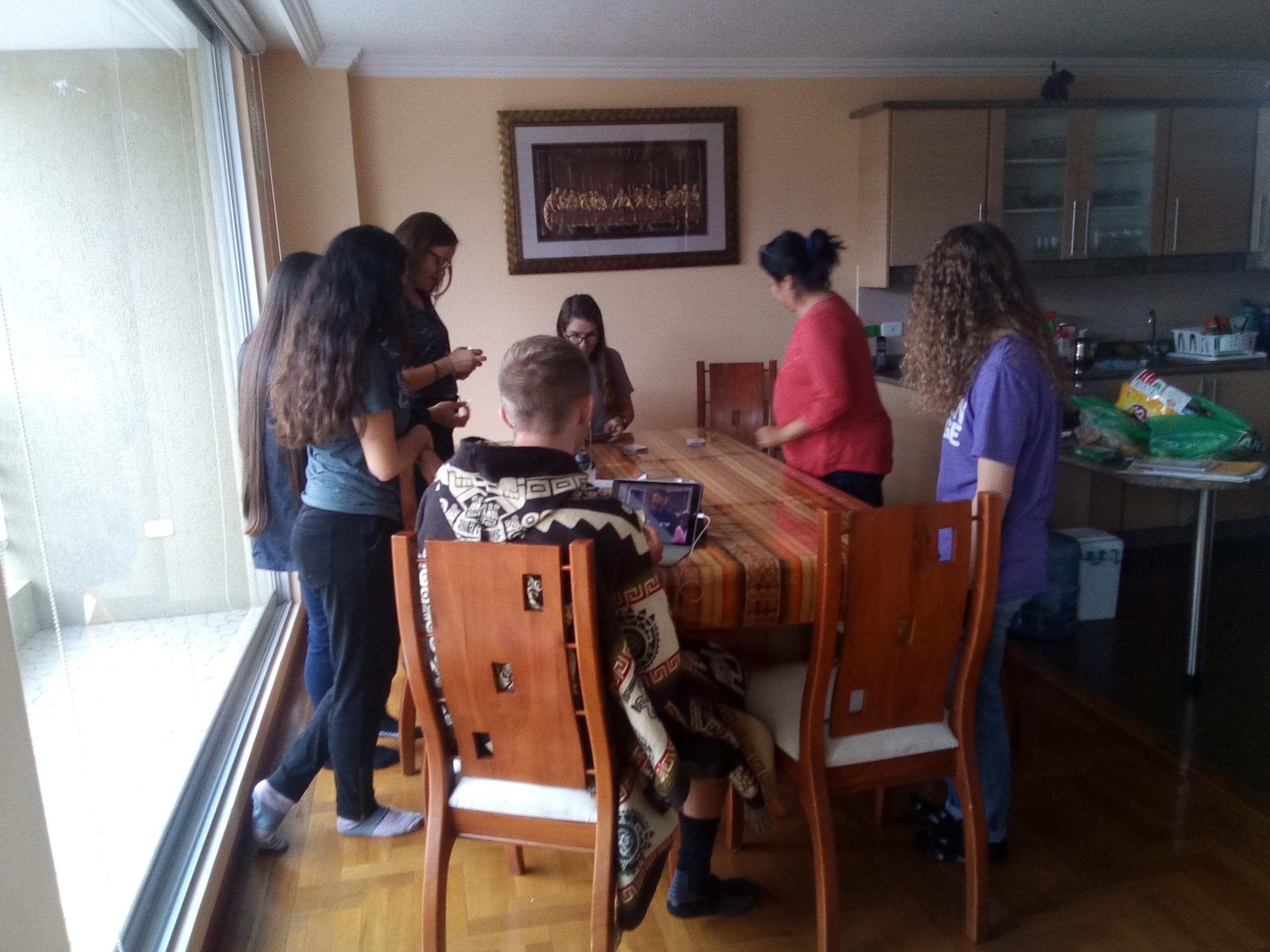The students in Goshen College’s first Ecuador Study-Service Term unit entered their fourth week in adjusted service locations on Monday, sent as a group to the coast after protests rocked the country for two weeks in October.
The six students were set to head off to different parts of the country to stay with host families for the second half of SST. Four students were scheduled to go to two different communities in the highlands before transportation strikes froze travel and isolated rural communities.Last week, Andrew and Ruth Hartzler, SST leaders, and Jan Shetler, director of international education at Goshen College, decided to move all the students to the coastal city of Manta for service. Protesters were less active in Manta, Shetler said, and the city’s airport can offer transport in the event that protests halt ground transportation again.
The students missed three days of service due to the change.
“The SSTers weren’t in danger,” Andrew Hartzler said. “We were always keeping their safety at the forefront.”
Unrest began with strikes in early October when President Lenin Moreno of Ecuador implemented an austerity package that would put an end to the government’s fossil fuel subsidies. The move, intended to win approval for a $4.2 billion loan from the International Monetary Fund (IMF), led to overnight price hikes in fuel and other goods. Protests ended after Sunday, Oct. 13, when Moreno met with a coalition of indigenous protesters and announced he would withdraw the package.
The Hartzlers and Shetler began considering altered service locations a day earlier Saturday, when students were still living in Quito, Ecuador’s capital in the Andean foothills. The students had just spent a week at home with their host families without meeting for class due to the protests,
Andrew Hartzler said. “We wanted to do service soon, so we decided a service location where there were no protests would be good,” he said.
The students’ ability to study in locations with secure access to transportation was the main reason for the switch, Hartzler said. Partner organizations in the original service locations would not have been able to function if transport strikes resumed.
Manta was raised as an option on Saturday, and within a day, Hartzler said, he had enough families and work for all the students.”
“We bought the plane tickets Monday night,” he said. The students missed only three days of scheduled service.
Protests first began on Oct. 2, with strikes by transportation workers frustrated with fuel prices that soared overnight. Protesters burned tires and other debris on major roads to block traffic.
The next day, the SST group flew back to Quito from a week of traveling in the city of Cuenca. When the group got off the plane, the Quito airport was barricaded by protesters and the main highway to the city was blocked.
“We stayed in that airport for 10 hours,” said Olivia Clemens, a junior in the Ecuador SST unit. Eventually, the military cleared the roads and the father of one student’s host family drove to the airport to pick up the students in a van, said Shetler.
On the highway, the driver navigated around stones and the remains of charred tires.
That weekend, indigenous and labor groups joined the protests, bringing up the number of protesters into hundreds of thousands. The Hartzlers cancelled classes for the next week as protests surged in the city. The group met virtually with a Zoom call a few times to check in with important information, but the students’ didn’t leave their houses, Clemens said.
On Sunday, Oct. 13, Moreno came to an agreement with indigenous leaders and announced he would roll back the austerity package.
Indigenous leaders called off protest on Monday the 14th, and thousands of protesters helped clean up the city before leaving Quito to go home.
By Wednesday, the city “looked like nothing ever happened,” said Siana Emery, a senior.
Protests are not uncommon in South American countries, Shetler said, but the unrest last month was broader and more tense than most.
Dianna Campos, a junior, said her Quito host family was frustrated by the protests. “About every time we sat down for dinner there [were] non-stop discussions about what they heard over the news and the scary things they heard that happened,” Campos said in an email.
Ecuador is not the only South American country to experience protests in recent weeks. In Chile, weeks of protests that began in response to a transit fare hike led the Chilean government to cancel COP25, the United Nations Conference on Climate Change, on Wednesday.
In Bolivia, protests escalated last week and left two anti-government protesters dead after a disputed election on Sunday, Oct. 20, resulted in the re-election of President Evo Morales to his fourth consecutive term. In Haiti, 42 people have been killed and dozens more injured in the past two months of sustained protest that began in opposition to high fuel prices in September.



